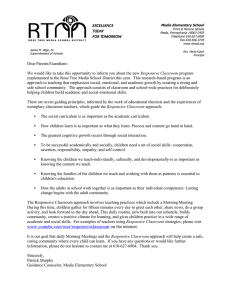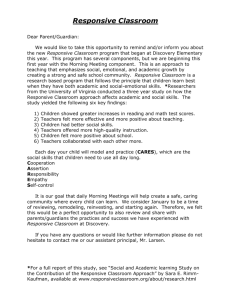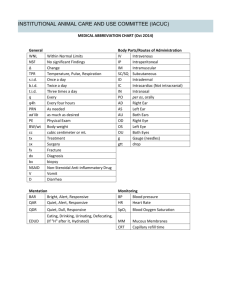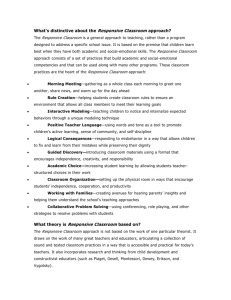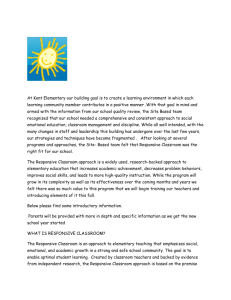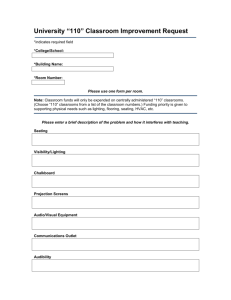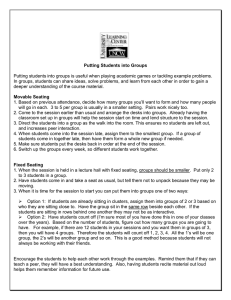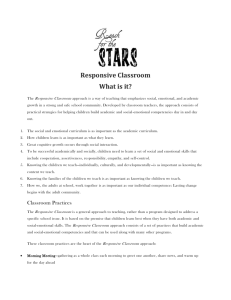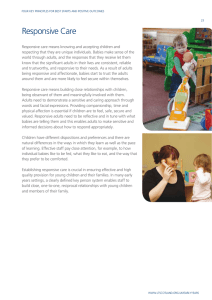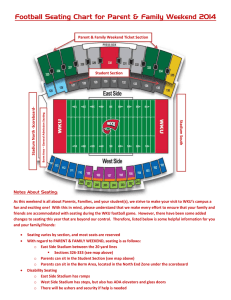50 Strategies Brochure - ED508Portfolio
advertisement
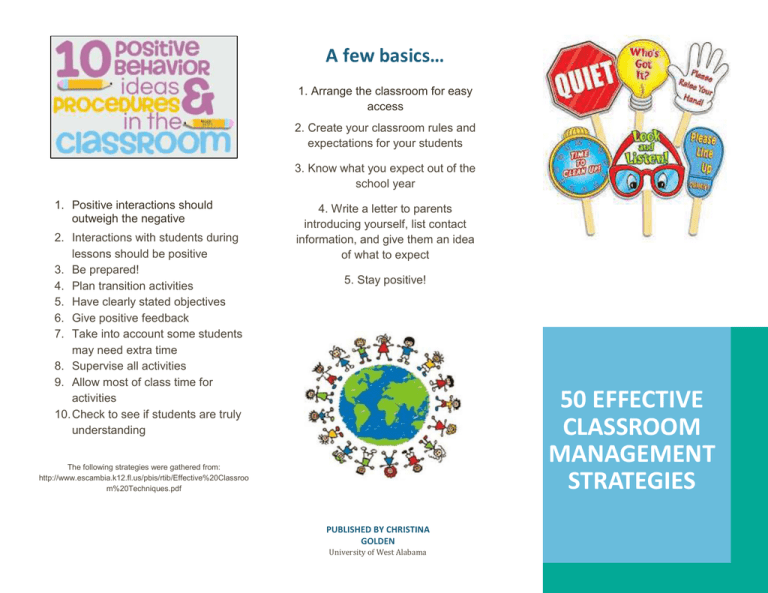
A few basics… 1. Arrange the classroom for easy access 2. Create your classroom rules and expectations for your students 3. Know what you expect out of the school year 1. Positive interactions should outweigh the negative 2. Interactions with students during lessons should be positive 3. Be prepared! 4. Plan transition activities 5. Have clearly stated objectives 6. Give positive feedback 7. Take into account some students may need extra time 8. Supervise all activities 9. Allow most of class time for activities 10. Check to see if students are truly understanding 4. Write a letter to parents introducing yourself, list contact information, and give them an idea of what to expect 5. Stay positive! 50 EFFECTIVE CLASSROOM MANAGEMENT STRATEGIES The following strategies were gathered from: http://www.escambia.k12.fl.us/pbis/rtib/Effective%20Classroo m%20Techniques.pdf PUBLISHED BY CHRISTINA GOLDEN University of West Alabama THE RESPONSIVE CLASSROOM APPROACH 1. You need an effective classroom management plan 2. Understand that Day 1 is critical for establishing your rules 3. Create a seating chart, but be flexible 4. Seating chart should maximize learning 5. Be ready to greet all students as they enter the room 6. Have a plan for each day 7. Praise your students 8. Create a balance between delivery of instruction and activities 9. Consistently monitor their progress 10. Give precise instructions 11. Try not to get sidetracked 12. Respectively handle disagreements 13. Be conscience of student interests 14. Understand you may not get too much out of them at first 15. Keep calm Adapted from: https://www.prevention.org/resources/sapp/documents/ ClassroomManagementStrategies.pdf 1. Lead morning meetings on a daily basis 2. Teach skills needed to participate 3. Shed a positive light on mistakes 4. Only use positive language 5. Get students excited about learning 6. Allow students to reflect on what they’ve learned 7. Maintain contact with parents 8. Encourage cooperation 9. Focus on assertiveness 10. Teach responsibility 11. Teach self-control 12. Help students to empathize To learn more about the responsive classroom visit: www.responsiveclassroom.org PREVENTING MISBEHAVIORS 1. Plan, plan, plan 2. Clarify expectations 3. Involve students in decision making 4. Give students a choice in assignments 5. Have a procedure for everything 6. Build a rapport 7. Model proper behavior 8. Don’t lose your temper
